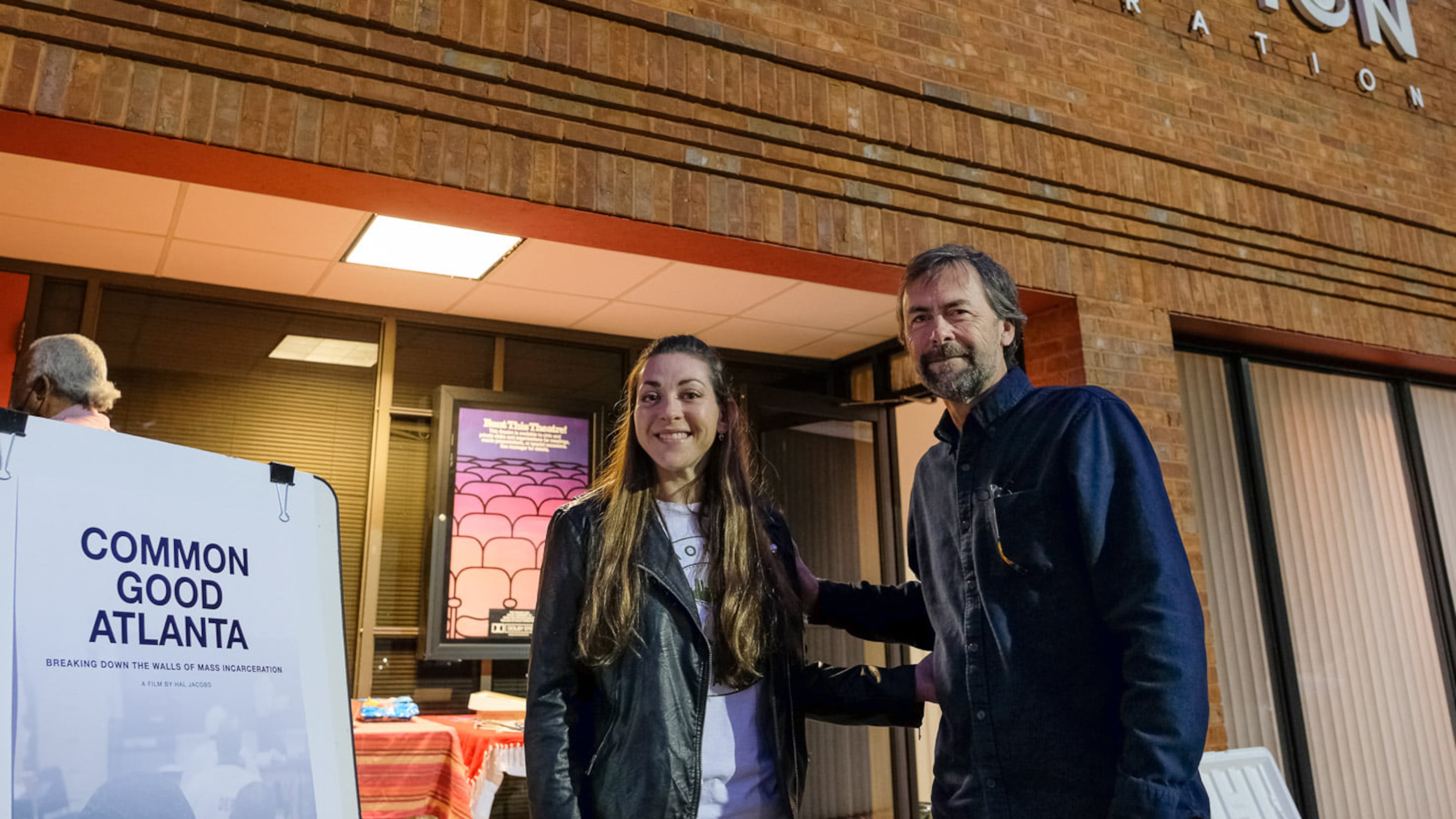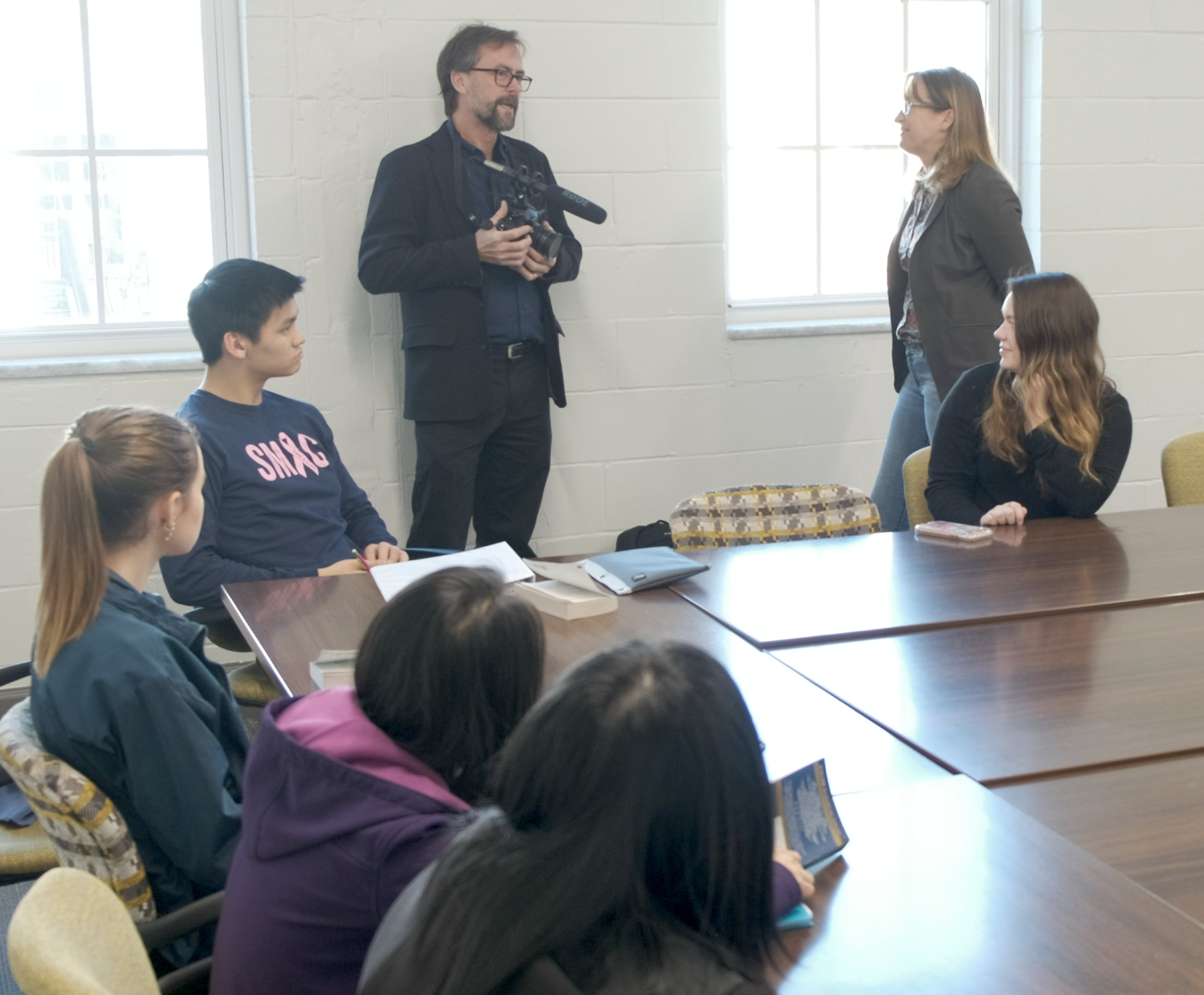‘Common Good Atlanta’ documentary shows how lit liberates Georgia inmates

Georgia claims one of the highest per capita incarceration rates in the world.
In 2008, Sarah Higinbotham, then a Georgia State University PhD candidate, wanted to teach a literature class inside a prison and was surprised to learn that no other program of that kind existed. So she started one herself, and a couple of years later Bill Taft, a writing instructor at Georgia State University, joined her. Soon enough, inmates were rattling off passages from William Shakespeare to James Baldwin and applying those lessons, and insights, to their own lives.
The program grew quickly as word spread. Today, more than 100 professors and 700 incarcerated students (some earning college credits) participate in the liberal arts program at four prisons and a downtown location in Atlanta. It is called Common Good Atlanta. The detainees’ testimonials touch the heart, and demonstrate a deep reservoir of human potential begging to be tapped.

This subject — where idealistic social justice meets unassailable, tangible results — naturally appealed to filmmaker Hal Jacobs, who in recent years has been establishing himself as Atlanta’s answer to Ken Burns. To help promote documentary filmmaking in the South, he founded the Decatur Short Docs Festival, which hosts screenings with the support of the Georgia Center for the Book and Georgia Humanities. In 2020, he was awarded a fellowship from the Hambidge Center for the Creative Arts & Sciences in Rabun County.
Jacobs will be screening his documentary “Breaking Down the Walls of Incarceration: Common Good Atlanta” at the Plaza Theatre at 7 p.m. Wednesday, May 18.
We caught up with Jacobs to discuss this project and his journey in filmmaking.
Q: Tell us a little about your background in the arts. How did you end up here?
A: I fled Jacksonville, Florida, to Tallahassee and Florida State University, where I studied philosophy and took all the film classes available and attended all the free movies possible and started a theater/comedy group, Asylum Theater, that did midnight shows across the street from campus in the basement of a dive bar, The Pastime. I moved to Atlanta in 1983, working as a proofreader for wedding and graduation announcements, typesetter for a graphic design shop in Midtown, and managing editor at a professional organization for business professors at Georgia State University. I studied filmmaking and screenwriting at GSU for a M.S. in Communications when filmmaking, and editing, involved using Super 8mm cameras. Eventually, I began making hundreds of YouTube videos before starting an indie film/video business to produce full-length films and also work with artists, environmental and social justice groups.
Q: This film clearly involved quite a bit of legwork. How many people did you interview or feature?
A: There are lots of voices in this [57-minute] film, 24 in all, representing alumni from the program, either formerly incarcerated or students from the Clemente Course in the Humanities [the free downtown class offered by Common Good Atlanta]. I also spoke with faculty from Georgia State, Georgia Tech, the University of Georgia, Emory University and Morehouse. Plus state Senator Nan Orrock and former Georgia Humanities president Jamil Zainaldin. I’d also like to point out that we featured local musicians Clay Harper, Trapbone and Bill Taft of W8ing4UFOs.
Q: What drew you to this subject?
A: I’ve been friends with indie musician Bill Taft (Jody Grind, Smoke, W8ing4UFOs) since the late 1980s and started hearing about his involvement with prison education in the early 2010s. In 2014, I produced a few short videos about the program, and in 2019 started filming the documentary, as well as teaching a few classes inside Phillips State Prison [in Buford]. The main draw, of course, was Sarah Higinbotham, the founder, and her story of how she wanted to teach one literature class inside a prison. How she wrote 14 prison wardens and only one accepted her offer. And how that has led to a program that reaches so many men and women today. Sarah’s dedication and passion and joy has set a high bar for every student and instructor in a Common Good Atlanta classroom, combined with Bill’s ability to connect with people in the most authentic and positive way. With Bill it’s as if every moment he seems to be discovering something amazing about the world. Sarah [now an assistant professor of English at Emory’s Oxford College] and Bill together have this chemistry, alchemy, that has transformed a simple prison education program into something magical that goes to the heart of what the liberal arts provide — liberation.
Q: Why should other citizens care about the personal growth of incarcerated people?
A: We all know, or should know, the travesty of mass incarceration in the U.S. and, closer to home, Georgia. Especially with people of color. The system is set up to almost guarantee people will fail when they leave prison so that they return. Almost all prisoners are eventually released. What happens then to both them and the community they return to?
Education prepares us to be successful. To navigate complicated circumstances and relationships, to become a positive role model to family members as someone who has overcome difficult circumstances and wants to improve himself or herself. How many lives are touched by higher education? By mass incarceration? How do we bring these two worlds together in a way that is meaningful not only to the individuals involved but their communities? Imagine what could happen if these communities could be brought closer together. That’s what literature professor Sarah Higinbotham did. She started bringing books into a prison to talk about Paradise Lost and other great works.
At its heart, the film is the story of a woman who wanted to make a difference in the lives of people who are too often overlooked and disregarded and misunderstood in our society, the incarcerated.
But the story reveals the lives of incarcerated students, who are hungry for an opportunity to reclaim dignity and respect, and professors who wonder if the liberal arts can truly make a difference in the lives of their students, as well as their own. Just as importantly, this is an Atlanta story — and a Southern story — of a community of people coming together to learn from each other and build a stronger community. This is a Southern story. We hear about these programs in New York, Boston, San Francisco. It is important to show what people in the South are contributing.
Q: How do you select a project to explore?
A: Every good film needs to tell the story of the journey of either a hero or antihero. I once wrote a profile of antihero Lester Maddox for a Creative Loafing feature, interviewing him a few years before his death, hoping he might admit to the errors of his white-supremacist ways a la George Wallace before his death. But, alas, Lester went down swinging. When I started looking around for a subject for my first full-length film, I considered doing one about Maddox because of the strong parallels with another white-supremacist politician running for president at the time. Instead I did a film about writer/activist/anti-white-supremacist Lillian Smith [Lillian Smith: Breaking the Silence], telling the story of her journey from north Florida to north Georgia and international attention for her work on social justice. Who would you rather spend two years with, Maddox or Smith? That’s the kind of decision that guides my selection these days.
Q: What is next on your to-do list?
A: I look forward to telling more stories about people in the South, either in short films such as “Michael Murrell: Art, Nature and Catawampus” and “Mary Crovatt Hambidge: Whistler, Weaver, Wanderer, Utopian” or other short profiles on my Vimeo channel. I get a little bored seeing most of our media focused on East Coast and West Coast stories. If we value locally sourced food and neighborhood brew pubs, surely we should be looking for more locally produced films as well.

MEET OUR PARTNER
ArtsATL (www.artsatl.org), is a nonprofit organization that plays a critical role in educating and informing audiences about metro Atlanta’s arts and culture. Founded in 2009, ArtsATL’s goal is to help build a sustainable arts community contributing to the economic and cultural health of the city.
If you have any questions about this partnership or others, please contact Senior Manager of Partnerships Nicole Williams at nicole.williams@ajc.com.

